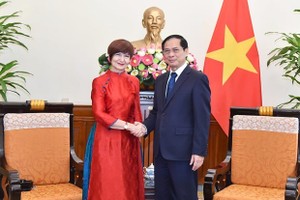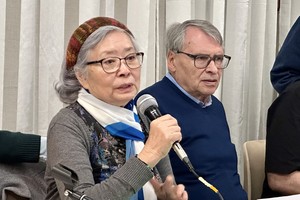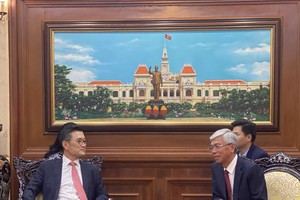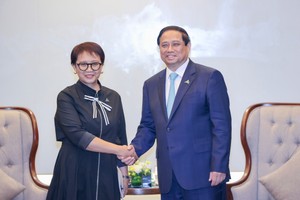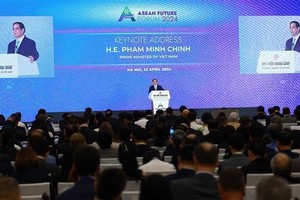President Vladimir Putin's spokesman on Sunday called a U.S. law barring Russians from the country over alleged rights abuses unacceptable interference in Russia's affairs, setting a tough tone before a visit by a senior White House adviser.
Dmitry Peskov's remarks were the first comment from Putin's office after the U.S. administration named 18 Russians subject to visa bans and asset freezes over the Magnitsky Act legislation passed by Congress late last year.
Most of the 18 were blacklisted for alleged links to the prosecution of whistleblowing lawyer Sergei Magnitsky, whose death in a Moscow jail in 2009 has set off a chain of events that has damaged Russian-U.S. ties.
"This is direct interference in Russian affairs. The so-called 'Magnitsky case' should not be discussed outside Russia at all," state news agency Itar-Tass quoted Peskov as saying. "This is unacceptable to us, and we will never agree with it."
President Barack Obama had been obliged to release the U.S. list by Saturday under the Magnitsky Act, which drew attention to concerns about rights and the rule of law in Russia, which Putin has led since 2000 as president or prime minister.
Moscow responded on Saturday by naming 18 Americans barred from Russia under retaliatory legislation Putin signed in December, most of them accused of violating the rights of Russians prosecuted in the United States.
Peskov blamed the United States for the exchange and said it could draw the attention of the two nuclear-armed countries away from issues of global security that are more important.
"At a time when international and regional conflicts dictate rapprochement between Russia and the United States, because the two countries are in many ways responsible for the situation in the world, actions are being taken that not only cast a shadow but inflict harm on relations between these countries," he said.
The blacklists added to tension before a visit by Obama's national security adviser Tom Donilon, whose talks with senior Russian officials on Monday will be the highest-level face-to-face contacts between the Kremlin and the White House since Obama started his second term in January.
But despite the rhetoric, both governments kept high-level current officials off their lists in an apparent effort to contain the political damage.
Peskov made clear on Friday that the relationship would not be ruined, saying ties were multifaceted and there remained "many prospects for development and growth".
Donilon's talks are expected to include discussion of U.S. plans for a European anti-missile shield, which have strained relations because Russia says the system could eventually shoot down its nuclear missiles and threaten its security.
A U.S. decision to scale down its plans could ease those concerns, but Moscow's response so far has been cautious.

